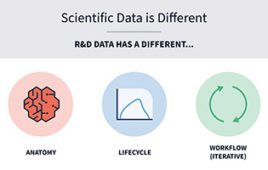 LONDON (AP) — Scientists and tech experts — including Professor Stephen Hawking and Apple co-founder Steve Wozniak — warned on July 28, 2015, of a global arms race with weapons using artificial intelligence.
LONDON (AP) — Scientists and tech experts — including Professor Stephen Hawking and Apple co-founder Steve Wozniak — warned on July 28, 2015, of a global arms race with weapons using artificial intelligence.
An open letter, signed by 700 researchers and more than 600 other experts, argues that, if any major military power pushes ahead with development of autonomous weapons, “a global arms race is virtually inevitable, and the endpoint of this technological trajectory is obvious: autonomous weapons will become the Kalashnikovs of tomorrow.”
Some critics have argued in favor of so-called “killer robots,” saying the use of robotics on the battlefield could save lives. Such weapons are still some years away.
But the scientists warned that, unlike nuclear weapons, once they are developed they will require no costly or hard-to-obtain raw materials — making it possible to mass-produce them.
“It will only be a matter of time until they appear on the black market and in the hands of terrorists, dictators wishing to better control their populace, warlords wishing to perpetrate ethnic cleansing, etc.,” the letter said.
The signatories included leading figures globally in academia and business studying artificial intelligence — the idea that computer systems could replicate tasks normally requiring human intelligence, such as language translation or visual perception. They were joined by philosophers, historians, sociologists and geneticists, among others.
Those signing letter included Apple co-founder Steve Wozniack; Elon Musk, Tesla Motors CEO; Demis Hassabis, who founded Google DeepMind; physicist Steven Hawking; Skype co-founder Jaan Talinn; and philosopher Noam Chomsky, an emeritus professor at MIT.
“We therefore believe that a military AI arms race would not be beneficial for humanity,” the letter concluded. “There are many ways in which AI can make battlefields safer for humans, especially civilians, without creating new tools for killing people.”
Copyright 2015 The Associated Press. All rights reserved. This material may not be published, broadcast, rewritten or redistributed.




